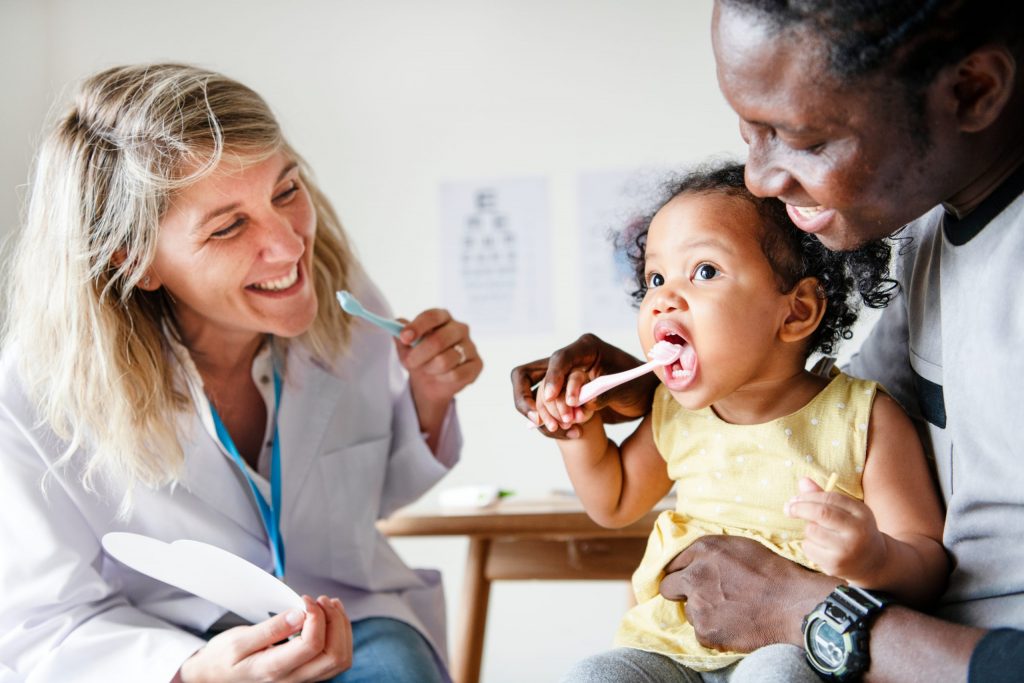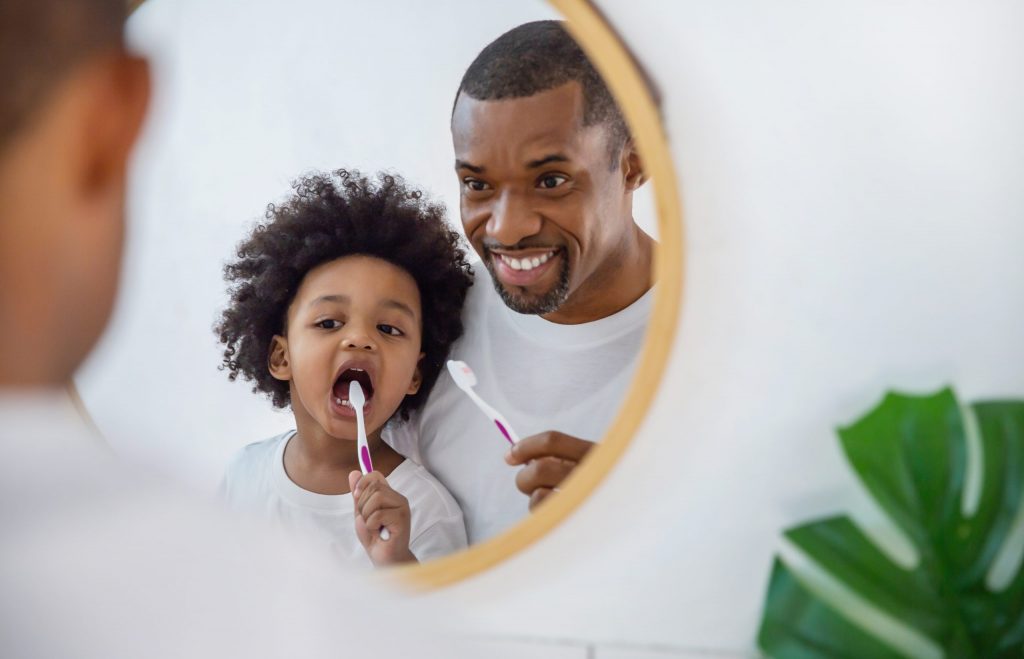Summer Smiles Discount
Save Up to 15% On 1 Treatment Item!
DOWNLOAD COUPONTrue or False: Your baby doesn’t need to see the dentist until all of their teeth have appeared.
 If you answered “True,” you aren’t alone. Many parents don’t realize that a baby’s first dental visit should take place long before they have a mouthful of pearly whites. The American Dental Association recommends that all children see a dentist as soon as their first tooth appears or before their first birthday.
If you answered “True,” you aren’t alone. Many parents don’t realize that a baby’s first dental visit should take place long before they have a mouthful of pearly whites. The American Dental Association recommends that all children see a dentist as soon as their first tooth appears or before their first birthday.
At Penn Dental Family Practice, our team of pediatric dentists wants every patient to have the best start toward a lifetime of good oral health. That starts with early dental care. Baby teeth (also known as deciduous teeth) are important for helping your child learn to talk and chew. They also help guide the permanent into place later on.
The importance of baby teeth is why we encourage you to schedule your baby’s first dental visit as soon as their first tooth appears. We also understand that you’re likely to have questions and concerns about what to expect during this visit.
Many parents are surprised to learn that their infant needs to see a dentist so early in life. After all, baby teeth fall out, so why worry too much about them at this stage? Are cavities even a concern?
The short answer is, yes, cavities are a concern even for very young children. Any tooth is vulnerable to decay, but cavities aren’t the only issue that dentists look for during your baby’s first dental visit. Pediatric dentistry at this stage serves several purposes, including:
The American Academy of Pediatric Dentistry (AAPD) reports that when children receive regular preventive dental care as toddlers, they are less likely to need dental treatment when they are older. In addition to saving money and preventing discomfort, there’s also evidence that early dental care creates habits that support good oral health well into adulthood.
The first dentist appointment is designed to give the doctor a sense of your child’s overall oral health and recommend early intervention if necessary. Perhaps more importantly, though, the visit helps your little one become familiar with going to the dentist and what to expect. Dental anxiety and phobias are real, even among children, so the earlier you can start helping your child feel comfortable with going to the dentist, the more likely they are to feel confident later on—and the more likely they are to have good oral health.
 Your baby’s first dental visit is probably going to be different from any other that you’ve experienced. Much of the appointment will be spent discussing your child’s health history and eating habits, as well as any concerns you have about their dental health.
Your baby’s first dental visit is probably going to be different from any other that you’ve experienced. Much of the appointment will be spent discussing your child’s health history and eating habits, as well as any concerns you have about their dental health.
For the exam, pediatric dentists typically work “knee to knee” with parents. You will sit in the dental chair and hold your baby while the dentist performs the exam, which only takes a few moments.
To ensure that the visit is as productive as possible:
Pediatric dentists are specially trained in working with young patients—including those who may not always cooperate. You can rest assured that your provider will work with you to ensure your little one is happy and comfortable, and that the visit will go smoothly.
Keeping your baby’s new teeth as healthy as possible and establishing good habits means oral hygiene should start as soon as they are born. This includes:
Penn Dental Family Practice recommends that children see a dentist every six months, following their initial appointment. Most children continue to see the children’s dentist into their teen years. You can learn more about pediatric services at Penn Dental Family Practice by downloading our informative fact sheet, which provides details you need about how to take care of your child’s teeth.
If it’s time for your baby’s first dental visit, make an appointment or call 215-898-PDFP (7337).
Get Your Appointment Now
We look forward to serving you and your family.